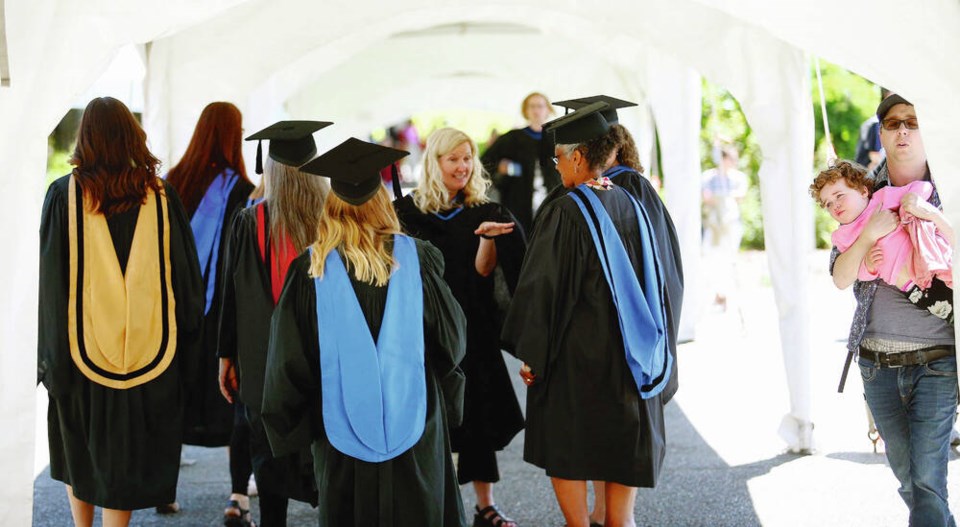To achieve the necessary qualifications to practice medicine or law in Canada requires about 10 years of study and also includes some form of supervised practice during and after the academic requirements have been met.
But to have achieved entry into those professions tells us nothing about how likely it is that an individual will become an accomplished doctor or lawyer. Actual accomplishment in a profession — or in any career, for that matter — is an internally driven process unique to the individual.
Achieving the basic qualifications to become a carpenter or a red seal chef, for example, requires the applicant to take three to four years or about 5,000 hours of instruction and practice (the numbers vary from institution to institution and even province to province).
But those numbers, those qualifications, tell us very little about the potential for excellence in carpentry or wizardry in a professional kitchen.
It’s only long after the qualifications are achieved, after years of commitment to a chosen profession, that the practitioner will become an accomplished expert in his or her chosen field.
That will not be based on having achieved the basic qualifications. It will be about continued commitment to meeting or exceeding the demands of a career in a chosen field.
It’s possible that we miss that point when, in the design of our public education system, we hold up the achievement of passing externally imposed obligatory tests as the end goal.
In holding up externally determined achievement as the culmination of learning, we may be ignoring the greater importance of helping kids experience the much higher educational value of self-directed accomplishment
And that is the point that Adam Gopnik, staff writer at the New Yorker and author of The Real Work: On the Mystery of Mastery, is making when he writes: “achievement is the completion of the task imposed from outside, the reward often just being a path to the next achievement.”
Gopnik distinguishes between achievement and accomplishment by defining accomplishment as “the sudden rush of fulfillment from absorption in a thing outside ourselves.”
This distinction between achievement and accomplishment makes sense to me.
Having qualified with an undergraduate degree and a further year of teacher training, I had no idea that the next 37 years would see me become totally involved with public education.
Did I become an accomplished educator? That’s not for me to say. There were successful and less successful experiences along the way, but not for a moment did I ever want to do anything else.
There’s a lesson in that for all of us as parents, teachers, guides and mentors: What activity is it that our child or our student becomes passionately self-directed about?
What was it that provided that sense of accomplishment that defined who and what we ourselves became as adults?
Which childish activity, on the face of it, seemed to be leading nowhere but became the path to a career or occupation?
But even that’s not the point. The point is that our kids will learn something important about themselves through the experience and satisfaction of self-directed accomplishment.
We, as adults, know this already. Especially later in life, we take up chess or a musical instrument or pickleball not because we hope to become recognized as experts, but because pursuing some new passion, at any age, provides the kind of cognitive opiate we continue to seek in order to experience our own sense of accomplishment.
Later on in my own career, it was my job to interview applicants for teaching jobs.
Reviewing their academic achievements did not take long, nor was there much variation in academic achievement or qualification from applicant to applicant.
Even though it was not supposed to be part of the selection process, I was just as interested in what else, hopefully included in their application, an applicant had accomplished with his or her life.
That told me more about who they were and what beliefs and experiences about the importance of learning, growing and developing they would bring to the practice of teaching.
It also told me that these were, in all likelihood, happy people who had the capacity to become absorbed by something outside themselves to whatever level of accomplishment — the path of most great teachers.
American businessman, engineer, and philanthropist Henry Samueli put it this way: “Passion is what gives meaning to our lives. It’s what allows us to achieve success beyond our wildest imagination.”
Geoff Johnson is a former superintendent of schools.
>>> To comment on this article, write a letter to the editor: [email protected]



